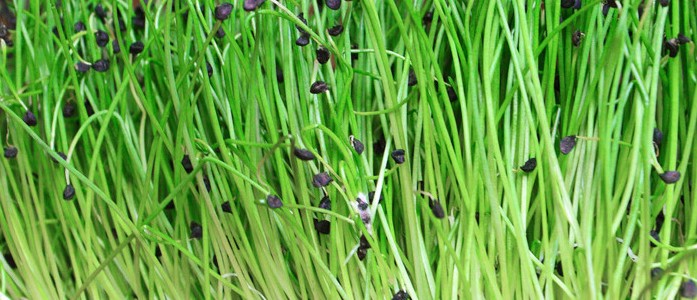-
 Turf Grass Seed Bluegrass, Bentgrass, Ryegrass, Fescues...
Turf Grass Seed Bluegrass, Bentgrass, Ryegrass, Fescues...
-
 Forage Seed Bromes, Clovers, Fescue, Wheatgrass, Legumes
Forage Seed Bromes, Clovers, Fescue, Wheatgrass, Legumes
-
 Grains Wheat Grain, Rye Grain
Grains Wheat Grain, Rye Grain
-
 Cover Crop Seed Buckwheat, Clover, Peas, Ryegrain
Cover Crop Seed Buckwheat, Clover, Peas, Ryegrain
-
 Wildflower Seed Mixtures, Singles, Annual, Perennial
Wildflower Seed Mixtures, Singles, Annual, Perennial
-
 Sprouting Seeds Fully certified Non-GMO Organic seeds for sprouts or microgreens
Sprouting Seeds Fully certified Non-GMO Organic seeds for sprouts or microgreens
Bunching Onions Non-GMO Sprouting Seeds
Bunching Onions- A bright colored sprout that germinates quickly and regrows for a second cutting. Onion sprouts are much milder than their bulbs. This versatile sprout can can be added to fresh salads and prepared dishes to add texture and flavor. Easy to grow.
Seeding Rate:
Indoor: 4 tsp./ per 10” x 10” tray
Outdoor: 250 seeds/ per 4 feet
How to Grow: All varieties prefer well-drained soil that is rich in organic matter. Soak seeds overnight. Using a 10” x 20” tray filled with 2” of moist soil, spread 4 tsp. of seeds evenly across the soil. Sprinkle lightly with more potting soil. Cover tray and store for 48 hours at 70°F – misting lightly two times a day. Sprouts will emerge in 3 to 4 days. Uncover and place in well-lit area (or under grow lights). Harvest as microgreens when plants reach 4” tall and produce open leaves Cut with scissors at approx. 1/4 inch above the soil. Plant will regrow for a second cutting. Onion sprouts can be stored dry in a plastic bag in the refrigerator for up to one week. Lightly wash before consuming. Best if eaten right after harvesting.
Nutritional Value: Sprouting seeds are richer in protein, folate, magnesium, phosphorus, manganese and vitamins C and K than un-sprouted plants. The vitamin and mineral content varies based on the variety of the sprouting seeds. Sprouts offer a powerful source of vitamins, minerals, antioxidants, and enzymes that fight free radicals because sprouting can increase their potency by 20 times or more.

